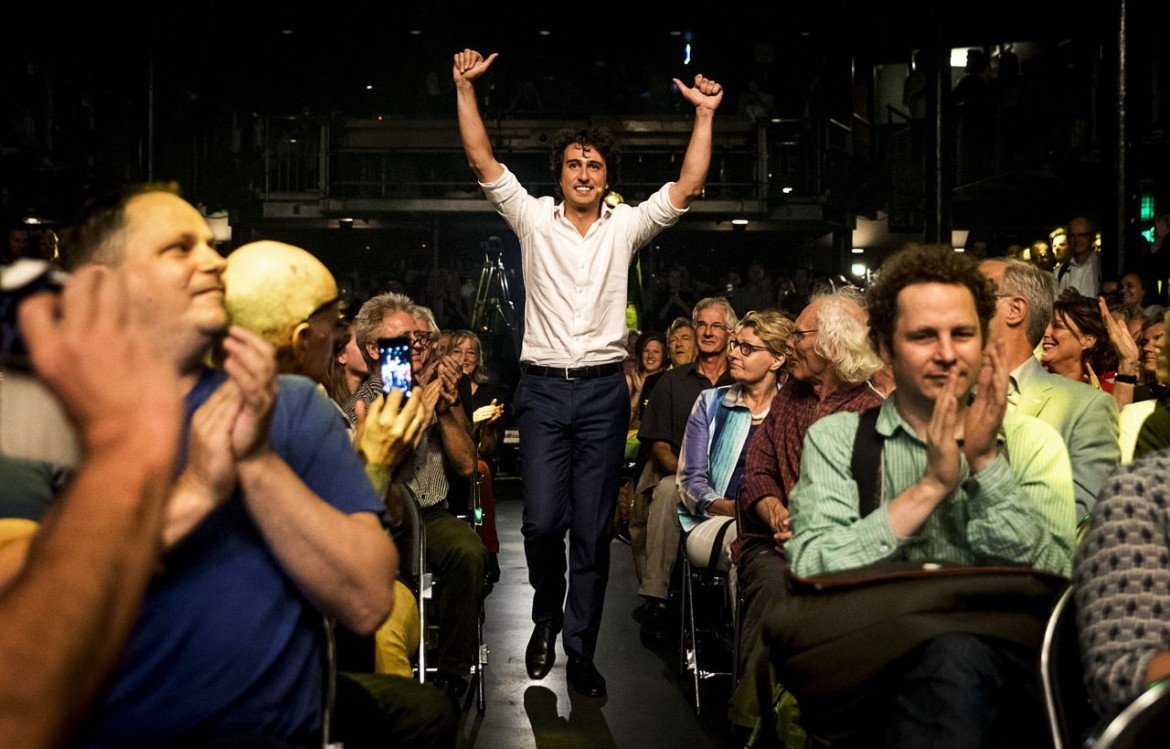Interview
GroenLinks group chair: ‘The right won and the left was weakened’
The leader of GroenLinks in Amsterdam said Jesse Klaver breathes new life into the party, helping to propel it to its largest victory ever. But the left is still the minority.

In the Dutch elections, GroenLinks (Green Left) won 14 seats out of the 150 in parliament. For the party created in 1989 by the union of four forces — the Communist Party of the Netherlands, the social-pacifist National Socialist Movement, and the Christian progressive Political Party of Radicals and Evangelical People’s Party — this ranked as its best performance ever. The candidates swept into 10 more seats than in the 2012 elections.
We spoke with Rutger Groot Wassink, the GroenLinks group chairman at the Amsterdam City Council. Here in the capital, GroenLinks has become the leading party (19.3 percent), exceeding the progressive liberals of D66, the liberal conservative VVD and the social democratic Party for the Animals (PvdA), whose votes plunged to 8.4 percent from 35 percent.
What’s your take on the election results?
I’m happy for my party, which claimed its best ever result, gaining 14 seats and 10 percent of the vote nationally. At the same time I’m really concerned about the state of the left in the Netherlands: In total, the various parties of the left, from the Party for the Animals to GroenLinks, have 45 seats out of 150 available. It shows that the right-wing parties have won the election, even though, fortunately Wilders’ party did not place first. The condition of the Dutch left, however, worries me a lot.
GroenLinks is the party that has had the greatest growth between these elections and previous ones in 2012. How do you explain this success?
One of the main reasons is the optimistic view that we bring forth. We look to Europe and to the world in a very open and welcoming way. We were clear that we need to help and accommodate refugees and that we need to focus on sustainable energy. The idealistic tones of our program are attractive, especially, for the part of the electorate with higher levels of education who can understand how change has now become a necessity.
GroenLinks’ open, welcoming and optimistic worldview has found a perfect representative in Jesse Klaver, the young leader of the party. With a mixed Turkish, Indonesian and Dutch background, he’s been hailed as the Trudeau or Obama of Europe. How much did his personality affect GroenLinks’ success?
His idealistic, optimistic and radical profile has succeeded in attracting many people. He brought together an ambitious program, young leadership, an image as an outsider to the system, and a new campaign conducted at the grassroots. We managed to earn the votes of a lot of young people and others.
In Amsterdam, GroenLinks became the largest party, going from 5 percent to 19 percent. Do you think there will be consequences for political life in the capital, where you continue to be in the opposition?
At the national level the progressive D66 has improved, becoming the first party in cities like Groningen and Utrecht. But in Amsterdam, where it governs, the opposite happened. Along with the charisma of Klaver, our opposition to such phenomena as the relentless gentrification of this city has led many Amsterdammers to choose to vote for the GroenLinks.
Now there’s the riddle of forming a new government. What’s your goal?
The situation is clear: The right won and the left was weakened in these elections. We will, therefore, be participating in the consultations, but it is really difficult to see an agreement that could bring GroenLinks into the government. Being in politics also means staying faithful to your own ideas, and in a government driven by the VVD that would be really complicated.
Originally published at https://ilmanifesto.it/jesse-klaver-e-un-leader-carismatico-e-idealista-la-sinistra-invece-e-preoccupante/ on 2017-03-17
